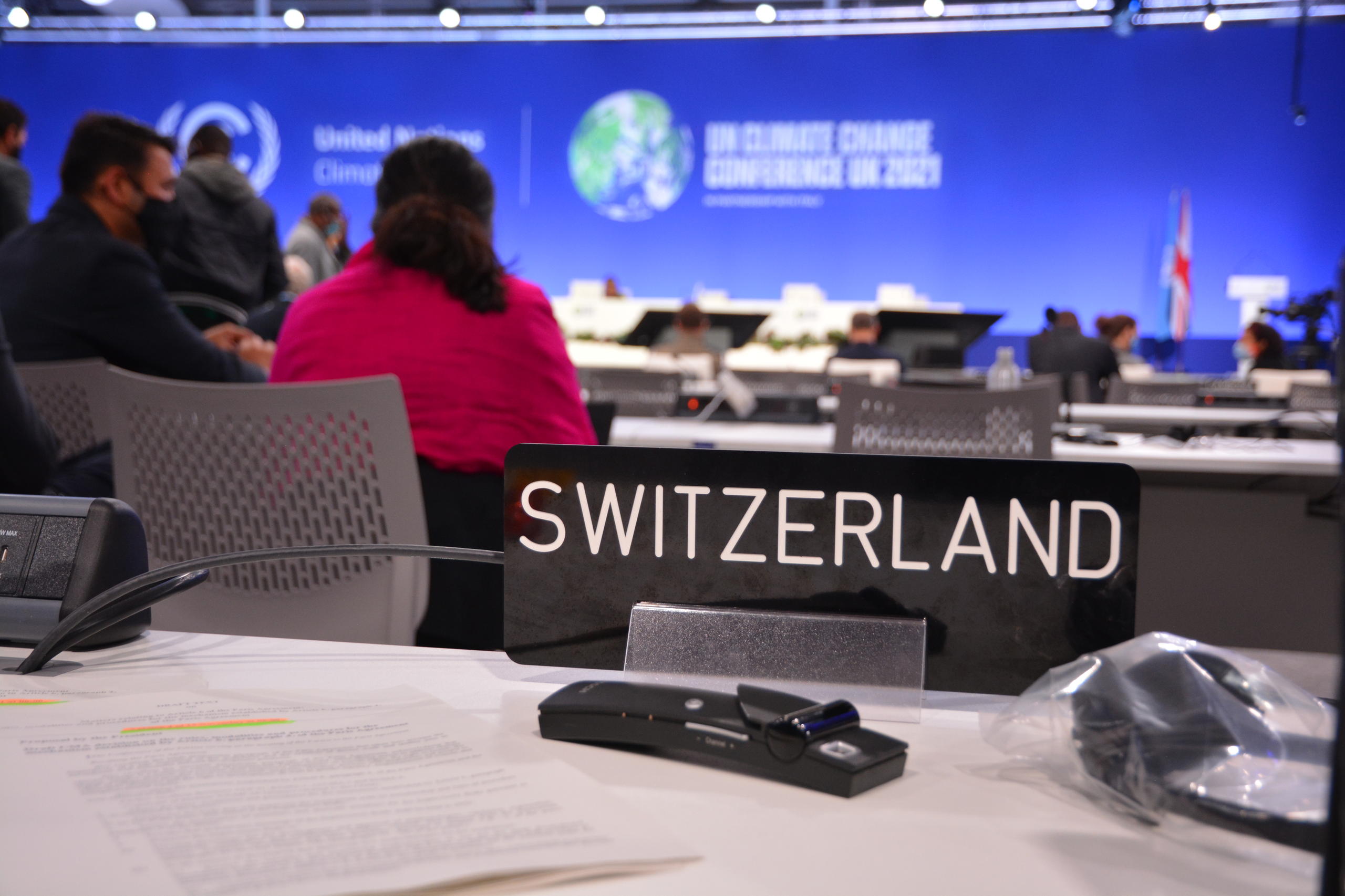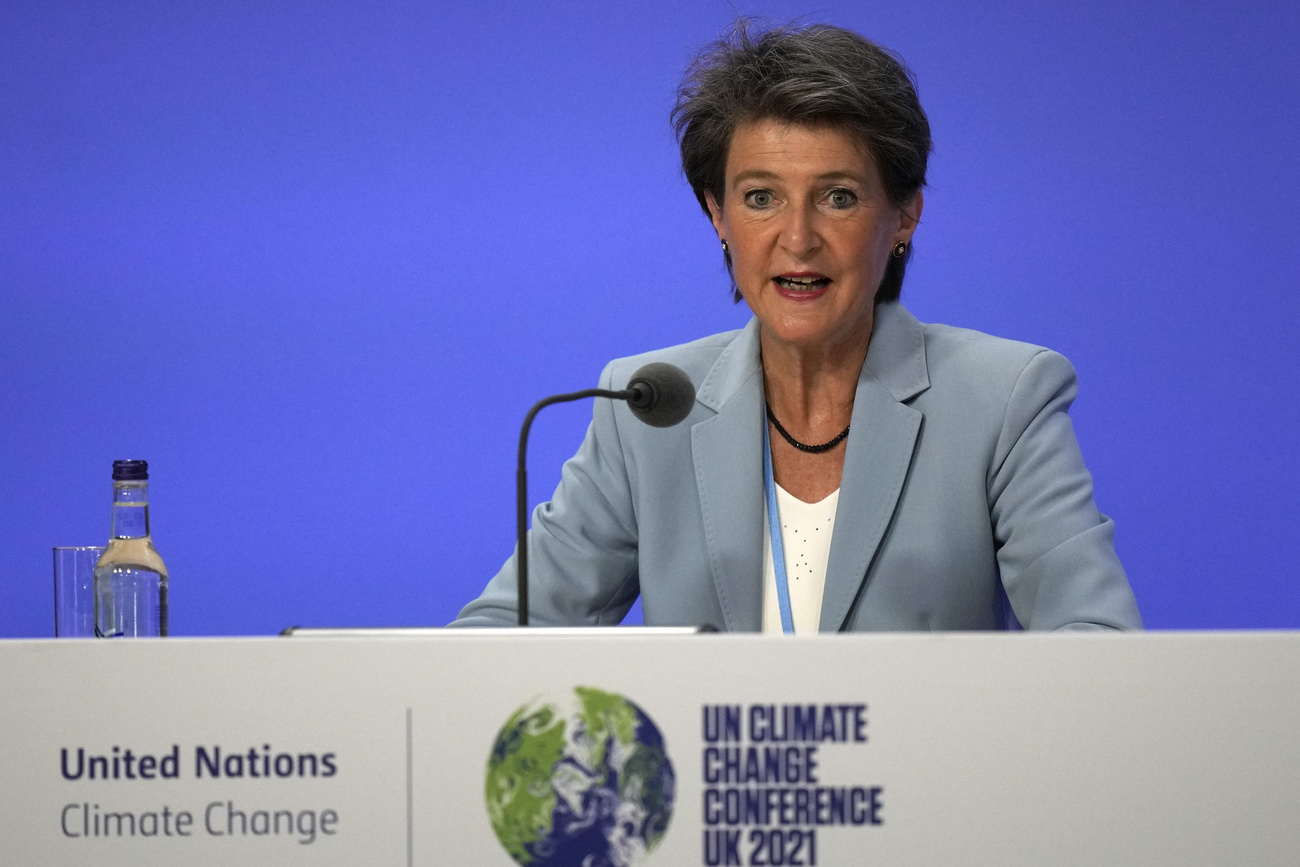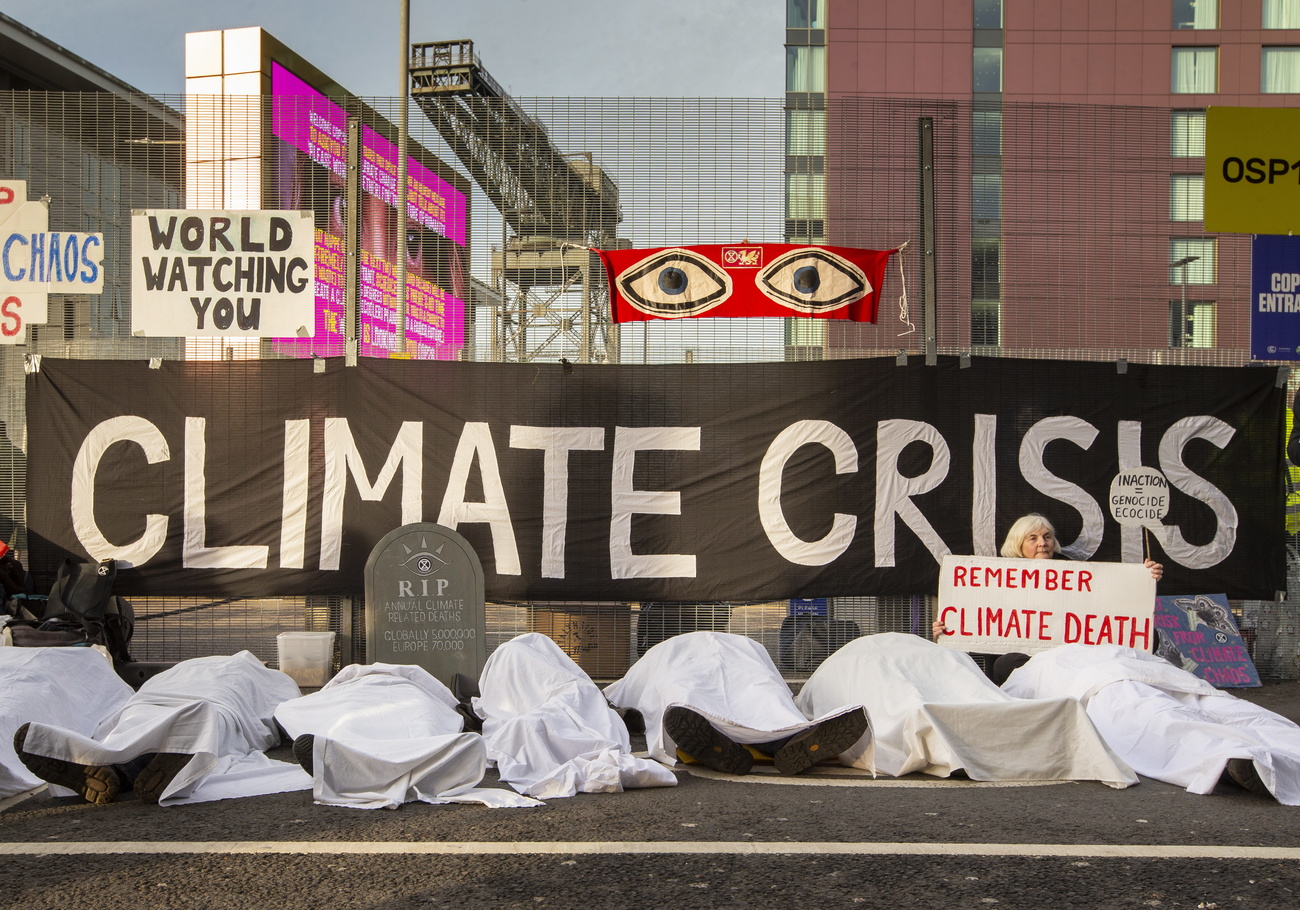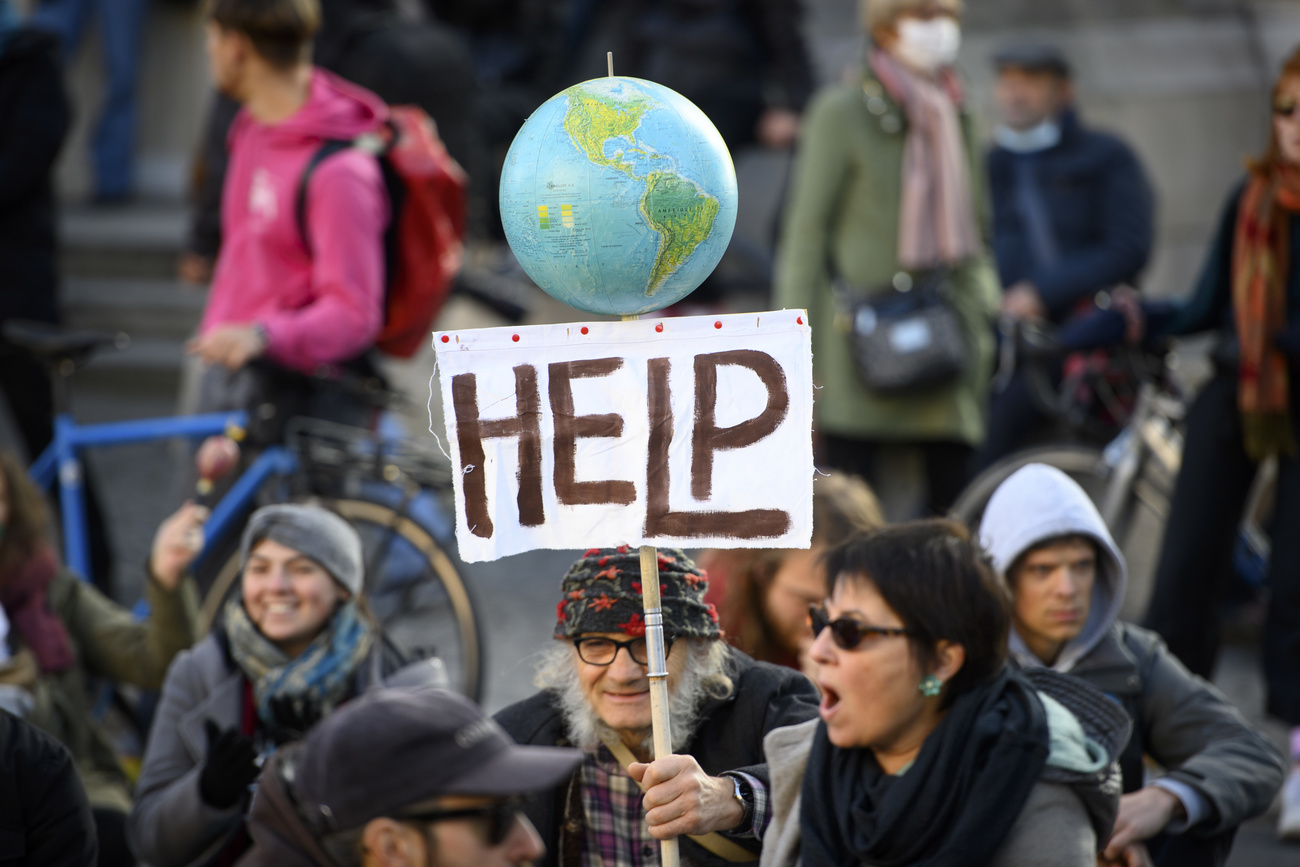Swiss papers highlight ‘ambivalent’ COP26 results

The Glasgow climate agreement secured at the COP26 conference late on Saturday has delivered a mixed bag, say Swiss media. Uncertainty remains a leitmotif in many papers.
“The outcome of Glasgow is delicate in that it turned out ambivalent,” wrote Tages-Anzeiger on Monday, following the conclusion of the climate talks.
“Those who still want to rely on fossil heating and continue to drive heavy cars with combustion engines have received confirmation that the lobby of the coal, oil and gas industries can still exert influence on the negotiations,” it wrote.
Those who want to cut CO2 emissions in Switzerland as quickly as possible, invest in sustainable products and earn money in the process can also draw hope from the conference, it went on.
“The question is: Where is the trend going? The results and the promises made by countries such as the US, China and the EU – even if they are only announcements – provide a clear answer: sooner or later, renewable energies such as wind and solar power and climate-friendly products will win the race. The only thing that is uncertain is how quickly this will happen,” the paper said.
The United Nations climate summit was meant to secure a deal to give the world a chance to avert the worst impacts of climate change by capping global warming at 1.5 degrees Celsius (2.7 Fahrenheit) above pre-industrial levels.
The accord met that bar, but barely, and its ultimate success will be determined by the future actions of the governments that thrashed it out, according to the summit’s UK hosts, participants, and observers.

More
Compromise COP26 deal disappoints
“Small miracle”
“The world climate conference in Glasgow has come to an end and is immediately condemned by activists as a complete failure. That is right and wrong at the same time. Although the conference did not achieve its ambitious goals, it nonetheless promotes climate protection,” NZZ said.
“Realistically speaking, the 1.5-degree target may have died, but global climate policy is more lively and active than ever before,” it said.
The conditions for success were so bad from the start [of the conference] that any progress towards global cooperation, no matter how modest, must be regarded as a “small miracle”, the NZZ commentary said.
“If all the new promises made by the governments in Glasgow are actually implemented, the warming will probably be closer to 2.4 degrees, according to climate experts. That’s huge progress within a few years”.
“Pressure from young people and the streets”
The Le Courrier newspaper was much more scathing.
“Too many compromises have made this COP26 a failure and only pressure from young people and the streets can change things,” it wrote.
The rich countries hardly acknowledge their responsibilities and do not show enough solidarity, it said.
The climate deal, backed by nearly 200 countries, for the first time explicitly targeted fossil fuels, asked governments to accelerate emissions cuts, and promised more money for poor countries struggling with climate change.
It also ushered in voluntary pledges and pacts from countries, companies and investors to clean up emissions from cars and planes, curb the powerful greenhouse gas methane, protect forests and bolster green finance.
But the deal was packed with compromises, leaving all sides – from wealthy nations seeking faster action, to resource-rich developing countries and low-lying island states –dissatisfied.
“Disproportionate expectations”
“Some of our collective disappointment with COP26 comes from the disproportionate expectations we had given it,” said Le Temps in its editorial.
“With Glasgow, we’re at the 26th international conference on climate change. Perhaps it was naïve to think that this one could change everything.”
For Switzerland, COP26 had nonetheless increased pressure on the authorities to step up the pace of climate policy, said Swiss public radio SRF.
The long-awaited rules for foreign offsetting, the urgent demand for stricter climate targets, the call for the end of subsidies for oil and gas and the pressure from developing countries for more climate finance – the most important decisions at COP26 – are also big questions for Swiss politicians.
“Switzerland is particularly challenged. After saying no to the CO2 Act, it has considerable long-term goals, but no plan on how to achieve them,” it said.

In compliance with the JTI standards
More: SWI swissinfo.ch certified by the Journalism Trust Initiative




You can find an overview of ongoing debates with our journalists here. Please join us!
If you want to start a conversation about a topic raised in this article or want to report factual errors, email us at english@swissinfo.ch.